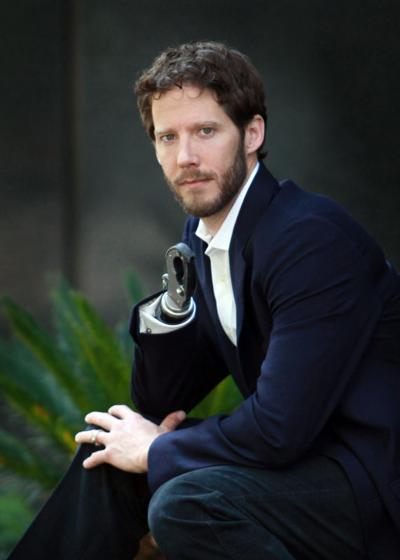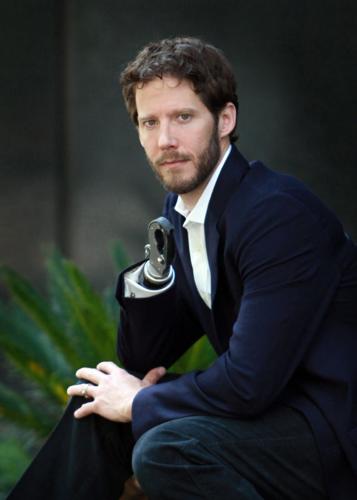Varsity Hall at Union South was packed with hundreds of people Wednesday night, mostly students, all there to see climber and author Aron Ralston talk about his harrowing experience trapped in the desert.
But the crowded room got as quiet as a remote canyon in southern Utah when he started to speak. The audience was spellbound by Ralston's tale of survival, recounted in his book "A Rock and a Hard Place" and the Oscar-nominated movie "127 Hours."
"You probably know that I'm the guy who cut his arm off," Ralston said, gesturing to the metal pincers that extended out of the right sleeve of his sharp suit. "What you probably don't know is that, while I was doing it, I was smiling."
In April 2003, Ralston was climbing through a narrow slot canyon in Utah when a boulder dislodged, pinning his hand against the canyon wall. He survived for almost six days, finally freeing himself by cutting his right arm off with a cheap multi-use tool.
Even for those who had seen "127 Hours," with James Franco playing Ralston, it was riveting to have the man himself recount it in person. He's doubtlessly told the story hundreds of times, and the talk had the air of a motivational speech, as he likened his story to the "personal boulders" that everyone has to overcome.
It's a great story on its own, and Ralston is a mesmerizing storyteller, acting out key moments during the ordeal, from the lowest depths of despair to the final, almost euphoric moment when he figured out how to free himself. Which is why he was smiling.
"I stepped out of my grave, and into my life again," he said.
It was poignant to see him re-enact the video message he made for his parents to say goodbye. But there were moments of gallows humor as well. Ralston recalled scratching his own epitaph ("ARON OCT 75 APR 03") into the wall, and then wondering if he should scratch it out and change it when he lived to see May 1.
And he described, in sometimes graphic detail, what it took to survive, including having to drink his own urine.
"If you've ever wonder what it's like to drink your own urine, it's horrible. So salty, so bitter, so acidic. But it's a damn sight better than drinking someone else's urine."
Ralston's talk added details that weren't in "127 Hours," particularly the backstory of what his family had been doing while he was missing. When he didn't show up for work, his mother called all his friends and even broke into his email account to figure out where he was. At almost the exact moment he was breaking his arm, Ralston said, a rescue team had discovered his abandoned truck in the desert.
Ralston said the experience has given him a new appreciation for his life and the people in it, and now says the boulder gave him a "gift." He is still an avid climber, using prosthetics that he designed himself. When he showed the audience a recent photo, rather than saying "This is me on Mount Kilimanjaro," he described it as "This is me and my sister, and we happen to be on Mount Kilimanjaro."
This April, on the 10th anniversary of the ordeal, he plans to go back to visit that boulder again.
"I'm reminded of the intensity of the darkness, and the joy of stepping into the light."




